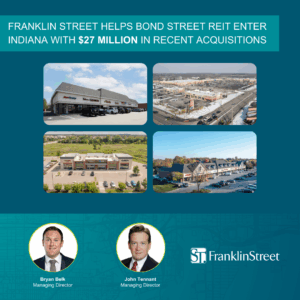The lack of affordable housing options continues to be a hot button issue across the nation. Further complicating the matter is the fact that affordable housing developers must deal with the high cost of commercial real estate insurance and the broad array of laws and regulations governing the marketplace. Michael Shadeed, director for Franklin Street Insurance Services, shares his expertise on how developers, owners, investors and managers can work with insurers to address those financial and regulatory barriers.
How are opportunity zone projects impacting the insurance needs of affordable housing developers in the U.S.? Affordable housing developers already enjoy tax credits from local housing authorities, and I am sure would like to increase those in every state and territory in the U.S. as well. The issue is that you must invest a full matching amount of your basis back into the property, and that is not the typical model for affordable housing developers. If the circumstance is perfect, it may work out, but this situation will not happen frequently.
Developers risk losing federal Low-Income Housing Tax Credits if they don’t abide by the strict timelines. How do insurers help developers remain on track in cases when their properties are impacted by delays? There are tax credit recapture coverages, which move back to the beginning of the development (up to 10 years) but are very expensive. There are also annual replacements for units not ready for inspection on January 1st that just cover one year under the business income and extra expense, and those are substantially more affordable.
Does the threat of hurricanes make Florida and other hurricane-prone states a more complex insurance market for developers than other states? Yes, there is a wind load for development projects that raises the cost of insurance. Also, due to the highly litigious environment, the carrier interest of construction default is high-risk and priced accordingly for any residential units.
What types of specific insurance coverage requirements do lenders have in each state? Lenders have standard agency debt requirements, which are generally uniform across the country. However, carriers will rate a property for wind exposure, and set deductibles accordingly, so buying conforming deductibles may be too expensive on some projects, unless you are willing to take on more risk.
Michael Shadeed is a Director for Franklin Street Insurance Services. He can be reached at [email protected].
About Franklin Street: Founded in 2006 during one of the toughest real estate climates, Franklin Street focused on delivering value-added solutions to meet the evolving needs of clients. Through a collaborative philosophy of leveraging the resources, expertise and experience of each of its divisions – Investment Sales, Tenant and Landlord Representation, Capital Advisory, Insurance, Property Management and Project Management – Franklin Street offers unmatched value and optimal solutions for clients nationwide. Learn more about Franklin Street at FranklinSt.com.



